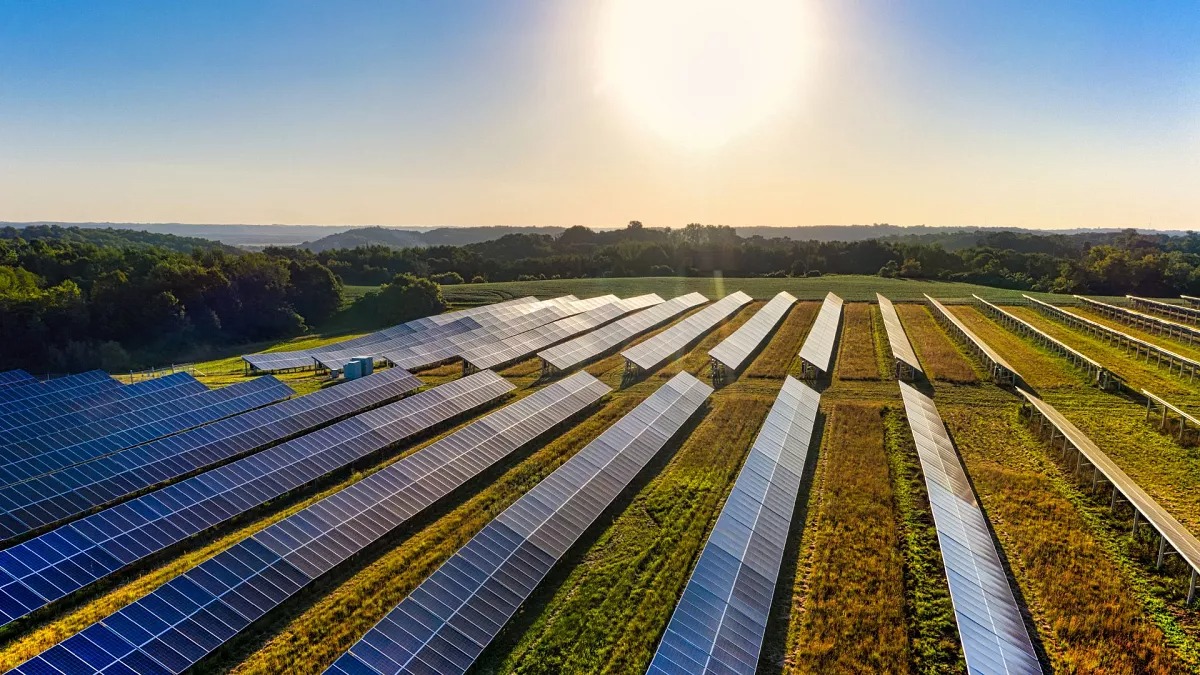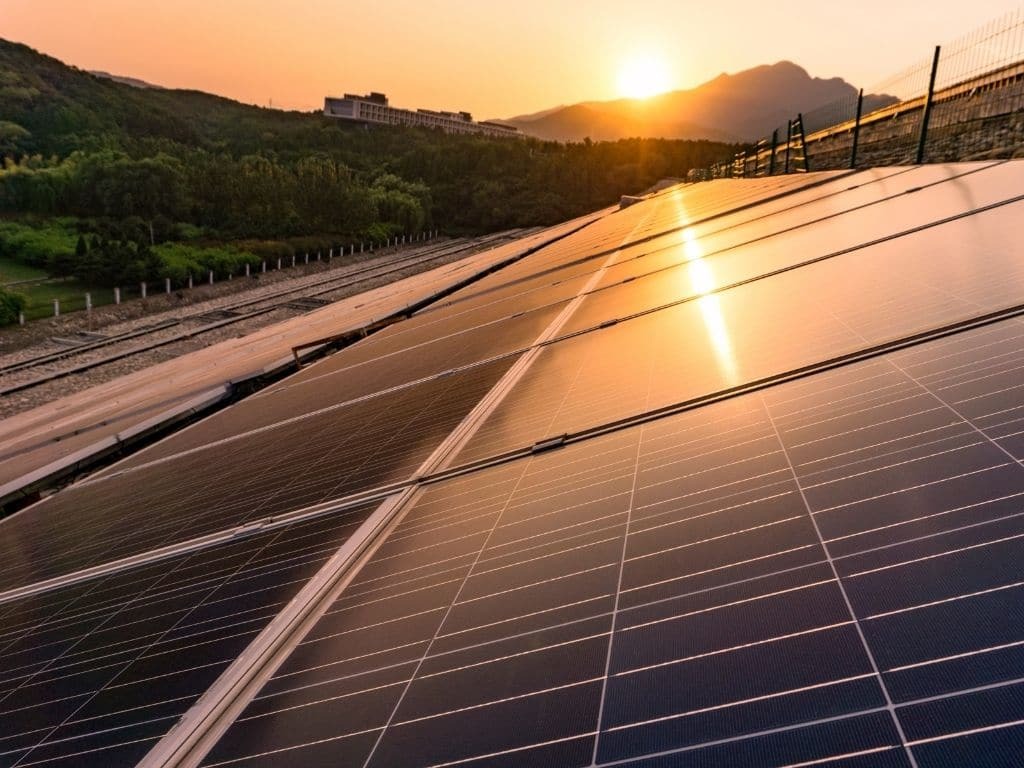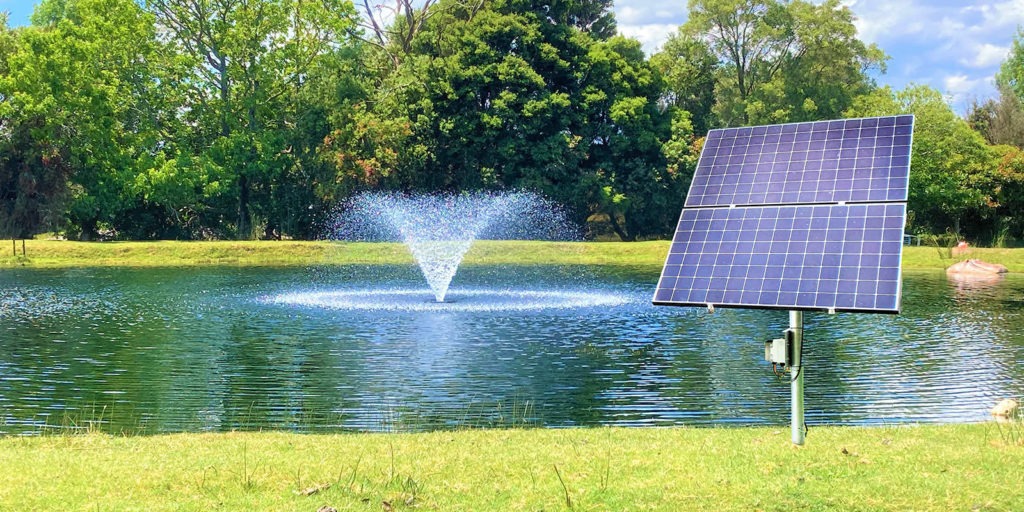Increase Energy Independence
Have you ever tried to find a way in which installing solar panels on your roof would not directly make such a move the definition of increased energy independence? I believe that doing so is virtually impossible, for any path can be traced. For instance, such installations give people power over the energy consumed by themselves.
Localized Power Generation
On a more global scale, solar panels enable homeowners to generate their own electricity. As a result, they do not rely on the grid to provide them with any energy. This is especially useful when the demand for electricity is at its peak and even the grid may be unable to handle it. Besides, when weather conditions or any other external factors affect the grid, solar power will become a remedy to the subsequent blackouts.
Solar Worked During California 2019 Blackouts
states that “hundreds of solar-powered homes emerged unscathed while surrounding areas went dark.” This is one of the most evident examples of how convenient having a personal source of energy may be in practice.
Reduced Impact of Market Fluctuations
A relatively trivial benefit compared to the above is that no one can influence the price of the energy you produce. You pay no money for generating and installing your solar panels, so you do not have to worry that certain forces in the market will raise the price you will have to pay to stay connected. It is true that the initial installment may appear costly, but it stands as a one-time payment.
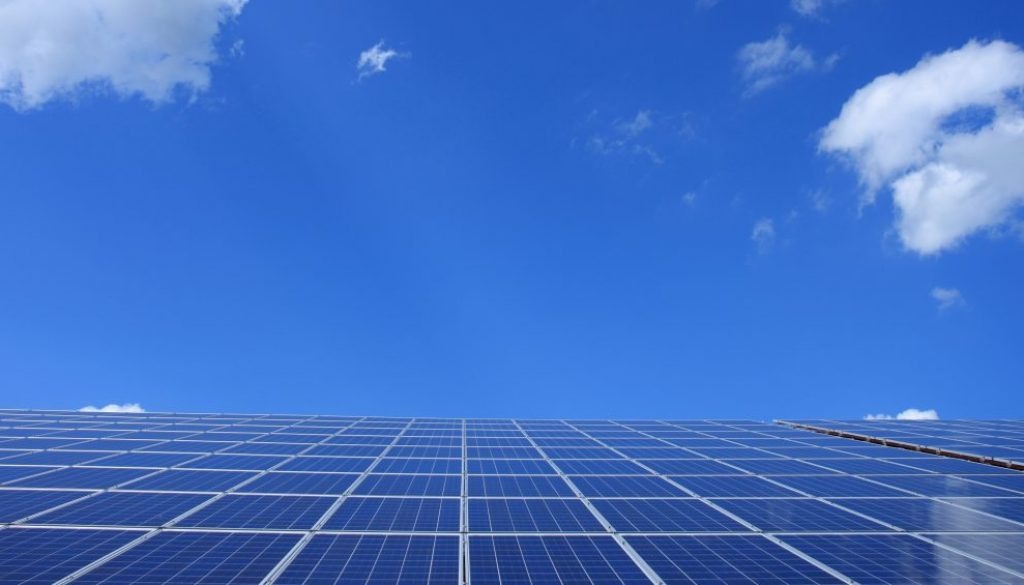
Supporting Local Grids
As a homeowner, you can also feed the excess energy your solar panels may produce back into the grid. The Pricing Assessment and Optimization department of the
Deloitte
website reports that this can be beneficial because “intermittent access to renewable resources are likely to be more available.” This process helps the grid to operate better as it has an additional source to take electricity from. It is especially useful for local municipal systems for it often helps enhance the supply demand matrix.
Energy Storage Systems
This description is applicable in full if one speaks about classical methods of solar energy usage. However, those opting for solar power now enjoy more benefits as modern systems do not even waste the unnecessary per watt. They imitatively charge batteries keeping excess energy there to be used when there is no access to the sunlight.
Long-term benefits
Finally, since oil will not lose its price soon and all fuel deposits will disappear eventual, it is only right that solar power should be seen as the future. If you choose now to start using it, you will clearly receive benefits in comparison to your friends a quarter of a century later, who will inevitably be forced to change their suppliers by the developments of the evolution.
Electricity Bill Significantly Reduced
To many people, one of the most glaring benefits of having solar panels on the roof is the evident reduction of their utility bills. It provides a reliable source of power that will be capable of completely offsetting the majority of one’s electricity needs.
Immediate Reduction in Energy Costs
As soon as a solar panel system is installed, it will be capable of producing electrical energy. This energy will be consumed immediately by whatever facility it is connected to. Therefore, the energy supplied to the household by the grid will either be reduced or will be completely offset by the power from the solar panel during peak hours of sunlight.
Example from a Real-life Case
The Johnson family of Arizona has installed solar panels in 2018. Before installation, their household utility bill was about $200 per month. Post-installation, their bill dropped to around $30 per month. This is an extreme example of the benefits such a system can provide, and it is partly due to the unique circumstances of Arizona. However, it is also indicative of the efficiency and utility of a newly installed solar panel system.
Net Metering Benefits
If an overproduction occurs, the extra power generated by the system will be sent back to the grid in many states due to the benefits of net metering. In return, the homeowner will receive credits for the extra energy produced that have not been used to power the facility. These credits will manifest in the form of a reduced or nil value of the household’s electrical bill.
Predictable Energy Costs
The cost of a system is known at the beginning of its installation, and it includes not only the cost of its installation but the cost of the energy it will produce. It is less evident in many places because the energy market fluctuates due to seasonal demand and changes in the price of the fuel used to generate electricity.
Long-term Savings
Over a long time period, the cost of the device pays out and even begins to provide dividends. On a national level, these savings present a significant benefit to the country’s spending on electricity.
Increased Energy Rates Protection
The owners of solar panels are mostly unaffected by rises in energy rates. Every time the general price of fuels either due to scarcity or for any other reason that makes the production more expensive the benefits of such a system become further amplified.
Increase Property Value
Installing a solar panel is not merely an energy-saving action—it considerably boosts your home’s market value. This increment in property value has been attributed to the fact that consumers are becoming more and more aware of energy efficiency and are on the lookout for such homes to invest in. There are several ways this factor can be examined.
-
A direct increment in the home’s resale value: a study has shown that homes equipped with solar power systems sell for more than normal residences. For example, a study by the Lawrence Berkeley National Laboratory revealed that, on average, solar installations add about $ 15,000 to the home’s value.
-
Prospective buyers’ view: another source of incremented value is the buyers’ standpoint. Homes with these features tend to sell faster—potential owners are aware of the lower electricity bills they will acquire. At the same time, they resonate positive feelings about the lessened environmental damage relation. In brief, solar panels are viewed as an upgrade, such as a finished basement or a remodeled kitchen.
-
Market trends in the real estate domain: In California and Arizona, the most obvious case of a solar installation affecting home value, it has been a leading factor. This is due to the high air conditioning prices these regions incur—they consist of the lion’s share of the electricity bill. Additionally, the sun is not only a number one air conditioner but also a source of energy due to areas’ climatic peculiarities.
-
Desirability of lowered energy bills: real estate agents, when drafting the home’s offer, list solar panels as one of the primary beneficial traits. We learn from local real estate data that modern buyers are peculiarly drawn to the chance of reducing their future living expenses.
-
Energy certification improvement: the value of a HERS index can be leveraged in order to determine a home’s energy efficiency. Importantly, solar power installations are a quick and direct way of upgrading this rating. Thus, it is logical that it has a positive impact on the home price.
Example of the long-term gain: for example, a homeowner in New Jersey installed solar panels in 2017. In 2021, local real estate data reveals that their home’s value has risen by approximately 4.1% more than similar residences in the area, which has not experienced solar installation.
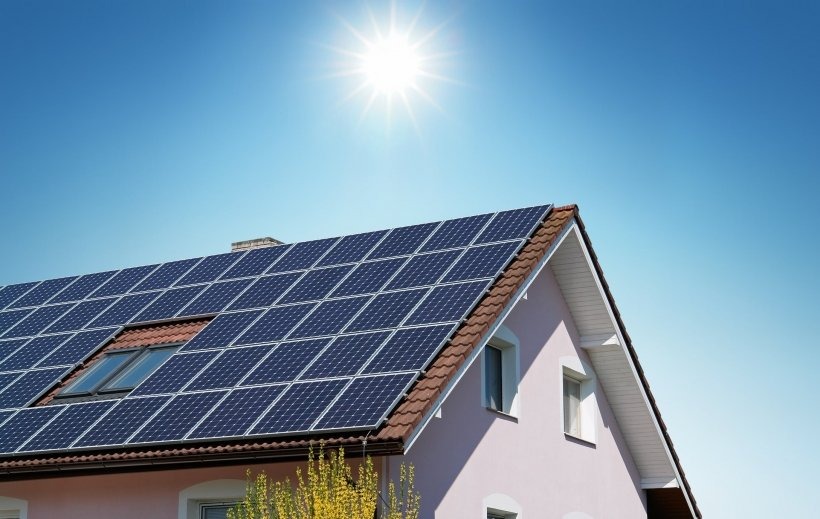
Environmentally Friendly Energy
One of the significant steps toward eco-friendly energy consumption is the installation of solar panels on the roof. Doing so not only allows you to diminish your greenhouse gas emissions but also to decrease your ecological footprint.
Reduction of Carbon Emissions
Solar panels generate power without releasing carbon dioxide or other harmful gaseous pollutants. The use of solar power permits an average household to decrease its carbon emissions by around 3 to 4 tons per year. Dirty Dozen FAQs states that this is equivalent to putting over one hundred trees a year.
Support of Renewable Energy
Everytime someone installs a piece of solar storage, it helps the renewable industry to grow. This type of support is advantageous due to the fact that it fuels the advance of technology and helps to diminish the prices of solar components. The best example of the impact that the use of solar cells can have is Germany. The country is one of the unspecified global leaders in the agricultural resource. The nation has been putting this observation into practice, and the use of solar technology has significantly aided Germany in cutting the greenhouse gases it emits. Also, the country set an example for other countries that started copying Germany’s approach to the issue and developing their own plans of lowering emissions.
Mitigation of the Urban Heat Island Effect
Solar panels reduce the urban heat island effect. This phenomenon occurs when houses, sidewalks and streets in cities and suburbs accumulate heat. Various environmental phenomena cause urban environments to be warmer than countryside lands. When building are fitted with solar panels, they take in less heat from the sun throughout the day. This results in decreased temperatures in streets of the city.
Conservation of Water Resources
With the exception of putting hydropower stations into use, fossil fuel power plants also need water to generate energy. Due to the fact that roof solar storage does not require any fluids for the electricity generation process, they reduce the consumption of water. This characteristic has a positive effect on the situation in times of drought.
Promotion of Biodiversity
While most of the energy generation methods greatly harm the lives of insects and animals located near coral reefs and power plants, land and roof solar cells mostly do not alter the lives of wildlife since they do not disrupt habitats.
Low Maintenance Cost
There are several appealing advantages of solar panels, and one of them is low maintenance. Solar panels do not require much attention once installed, and home owners may significantly benefit from an eco-friendly and cost-effective power supply.
Durability of Solar Panels
Solar panels are durable as they are designed to withstand all types of weather from extreme heat to extreme freeze. Hence, most producer companies give a guarantee for 25 or 30 years, despite that they actually keep working well for way longer. In particular, solar panels lose about 0.5% to 1% of their efficiency a year, and sometimes even less.
Routine Cleaning
The small amount of maintenance they require is represented by cleaning. Normally, solar panels get covered with dust, leaves, and other debris blocking the sun. Such cleaning can be done by home owners, but they can also refer to professional services for not as high prices as is commonly believed. According to lovepower.com, a normal cleaning service may cost $100 to $150, depending on the system size and panel location.
Real-Life Example
One real-life example concerns a home owner living in Seattle where it is usually very rainy. That person owns solar panels and shared that they just clean them twice a year. As a result, his/her solar panels retained 98% efficiency at power generation back then.
Monitoring Systems
Besides, modern solar panel installations normally come with monitoring systems allowing to check the performance of the home system in real-time. That is helpful because the monitoring system sends a warning when the panels’ efficiency drops, and in that case a specialist may be required.
Minimal Wear and Tear
Not only do solar panels lack any moving partss, they also do not have mechanical components meaning that the lack of wear and tear. It should be mentioned that solar panels can still break, usually because of improper or insufficient maintenance, but that likelihood is incomparably lower than with all mechanical home systems, such as air conditioning systems or a water heater. Anyway, manufacturing companies normally provide a substantial warranty for their products covering both performance and equipment. In particular, a Nanosolar representative said that performance warranty is normally 20 to 25 years. That means that solar panels will perform at a certain level of their efficiency at the time of purchase or sometimes even higher for at least 20 years.
Receive Government Awards
A number of financial incentives can be provided by the government upon solar panels’ installation on your roof. These awards include grants, property tax incentives, and rebates that make your household system more economically attractive and affordable. Below, I describe the most significant financial encouragements received by the vast majority of American homeowners.
Federal Investment Tax Credit
Federal Investment Tax Credit is among the most significant incentives to utilize solar panels in the United States. The tax credit permits homeowners to deduct a substantial percentage of the cost of their solar power system from their federal taxes. In other words, owners of residential PV systems are allowed to write off up to 26% of their cost before 2022, with a subsequent 22% reduction in credit in 2023.
State-Specific Incentives
Local incentives can also be combined with federal credits. Firstly, a variety of cash and property tax rebates can be obtained. Secondly, some states have Mean Sales Tax Exemptions when you purchase your solar panel. In addition, the Self-Generation Incentive Program permits California residents to obtain a payment of funds if they install an energy storage system that uses the energy of the sun.
Example of Local Benefits
In Austin, Texas, you can get a, Austin Energy Solar Rebate Program, $2,500 cash rebate once you start using PV system. This measure results in lowering the overall cost homeowners have to pay to utilize renewable solar power and making it more affordable.
Net Metering
Apart from the schemes described above, many states have established the so-called net-metering. Not only will utility companies buy excess energy from the solar panel users often at retail price and provide financial remuneration by reducing your next utility bill, but your panels can eventually pay you as you start making a profit.
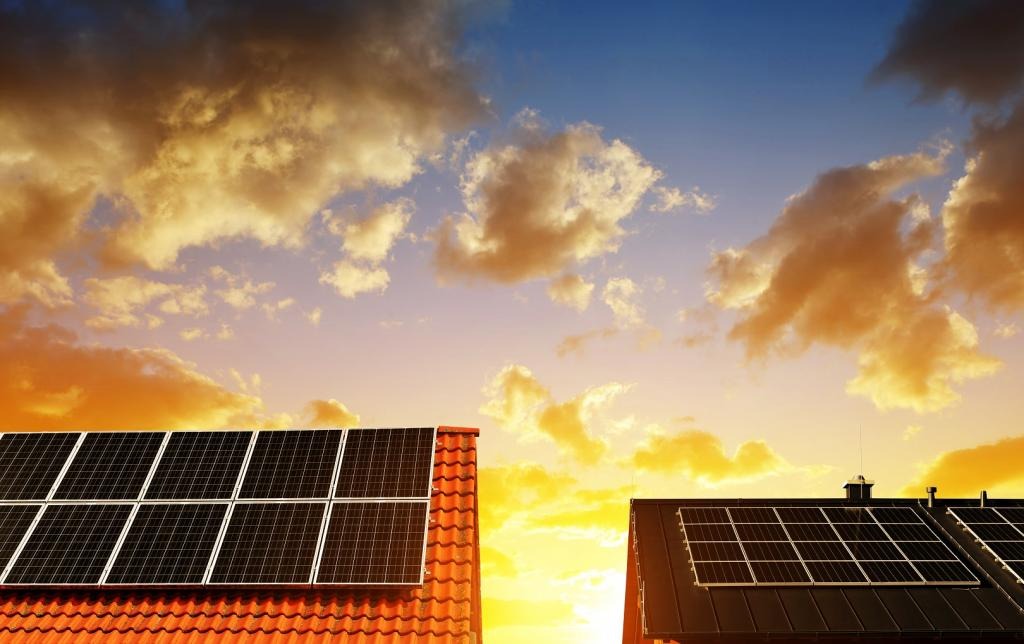
Supply During Power Outage
Solar panels combined with a battery storage system can serve as a reliable power supply as all-home backups. They work even when the grid is off and their main benefit is not just increased home safety and comfort. With the increasing unpredictability of energy supplying systems, households appreciate the additional security layer. This is what I would like as a customer.
How the Technology Works
To supply power when the grid is off, solar panels are combined with a battery storage system. These batteries store any excess energy produced by the panels during the day, allowing it to be used at night or in times of emergency, such as a power cut. For residential use, the system is typically Tesla Powerwall or LG Chem, which both connect to the solar panel system and can store up to several kilowatt-hours of energy.
A Real-Life Example of Resilient Solar Panels
In 2019, numerous areas of California experienced blackouts after wildfires. Officials of electrical companies shut down lines to prevent their further damage, as ember can travel downwind, igniting new fires. Residents with both solar panels and batteries did not experience any power outages. Such systems not only provide households with comfort, as most appliances require energy to run, but save lives by making sure that people can use their lights, refrigerators, and communication devices. In an emergency, some medical equipment, including some types of self-care devices, also requires power to work.
Increased Energy Independence
When households can rely on their own energy suppliers, they are less dependent on the utility. This is important in areas with frequent natural disasters, on the inlands or neighbouring territories of which the grid is less unstable compared to the rest of the country.
Economic Benefits
At a first glance, the purchase and installation of solar panels and batteries might seem quite pricey. However, households save equally solid amounts, as they avoid spending on spoiled products, temporary accommodation, or lost work time. It allows people to cover the expenses in the long term.

